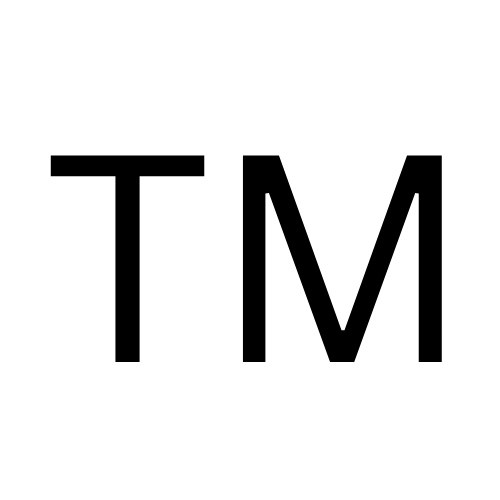Introduction
Trademarks, service marks, and registered trademarks are all forms of intellectual property protection used to distinguish the source of goods or services in the marketplace. While they share some similarities, they also have distinct characteristics and uses. The main differences between TM, SM, and ® symbols relate to the level of protection and the types of intellectual property they represent.
TM and SM symbols indicate unregistered marks for goods and services, respectively, while the ® symbol signifies a registered trademark with stronger legal protection. Registering a Trademark or service mark provides greater security and legal remedies in case of infringement, but it also involves a formal application process and fees.
In this article, we shall explore ‘TM’, ‘SM’, and ‘R’ in detail, the differences between them, how to protect registered and unregistered trademarks, and the process for registering trademarks in India.
What is Unregistered Trademark (TM)
A trademark, denoted by the “TM” symbol, is an unregistered symbol used to indicate that a particular word, phrase, symbol, or logo is being claimed as a trademark. Unregistered trademarks are trademarks not registered under the Trademarks Act, 1999. Because trademark registration is not mandated by law, the owner of an unregistered trademark can add the letter “TM” as a superscript to the mark to indicate to the public that it is an unregistered trademark.
It offers some limited protection and rights to the owner, even without formal registration. These rights are generally based on common law and the owner’s actual use of the mark in commerce. Owners of unregistered trademarks can take legal action against others for trademark infringement if they believe someone is using a confusingly similar mark. However, the level of protection for unregistered trademarks is generally less robust than for registered trademarks. For eg: Bluestone

What is Service Mark (SM)
The term Service has been defined under Section 2(z) of the Trademark Act,1999 as a service of any description that is made available to potential users and includes the provision of services in connection with business of any industrial or commercial matters such as banking, communication, education, financing, insurance, chit funds, real estate, transport, storage, material treatment, processing, supply of electrical or other energy, boarding, lodging, entertainment, amusement, construction, repair, conveying of news or information and advertising.
A service mark is the same as a trademark except that it identifies and distinguishes the source of a service rather than a product. Normally, a mark for goods appears on the product or on its packaging, while a service mark appears in advertising for the services. A service mark, denoted by the “SM” symbol, is essentially an unregistered trademark but is specifically used to protect services rather than physical goods.
Like trademarks, service marks provide their owners with the ability to distinguish their services from those of competitors, and they can be protected under common law without formal registration. The use of the “SM” symbol notifies the public and potential infringers that the owner is claiming exclusive rights to the service mark. For eg: Nykaafashion

What is Registered Trademark (®)
A registered trademark, denoted by the “®” symbol, is a mark that has been officially registered under the Trademarks Act, 1999. Registering a trademark provides the owner with stronger and broader protection compared to unregistered trademarks or service marks. Registration generally provides exclusive nationwide rights to use the mark in connection with the specified goods or services. It also allows the owner to take legal action against others who use the mark without permission. Registered trademarks are listed in a public database, making it easier for others to identify existing marks and avoid infringement.
Why registering a trademark is important?
- It identifies the origin of goods and services
- Advertises goods and services
- Guards the commercial goodwill of a trader
- Protects buyers from buying the low quality goods
For eg: Cadbury

Difference between TM, SM & R Symbols
| Particulars | TM | SM | R |
| Definition | An unregistered trademark is a trademark that is not registered under the Trade Marks Act, 1999 | A service mark is the same as an unregistered trademark except that it identifies and distinguishes the source of a service rather than a product. | A registered trademark is a trademark registered under the Trade Marks Act 1999. |
| Symbol |  |  |  |
| Significance of Symbol | The symbol ™ stands for trademark and can be used with any unregistered mark that a business or individual claims as a trademark. The owner may use the ™ symbol when applying for registration. | The symbol ‘SM’ stands for service mark when a trademark application for services is submitted. | The symbol ‘®’ stands for a registered trademark and indicates that a trademark has been officially registered with the trademark office. |
| Category | The application for trademark registration is submitted for products categorized under the trademark classes 1 to 34 of the Act. | The application for trademark registration is submitted for services categorized under the trademark classes 35 to 45 of the Act. | The trademark registration is approved and entered in the register of the trademarks for products and services categorized under the trademark classes 1 to 45 of the Act. |
| Legal Status | The ™ Symbol does not indicate that a trademark is registered and serves as a public notice that the user considers the mark to be their proprietary trademark. It provides some level of common law protection, but these rights are generally limited compared to registered trademarks. | The SM Symbol does not indicate that a service mark is registered and serves as a public notice that the user considers the mark to be their proprietary servicemark. It provides some level of common law protection, but these rights are generally limited compared to registered service marks | The R symbol provides notice to the public that the trademark is legally registered and affords the owner stronger legal protection under trademark law. Unauthorized use of a registered trademark can lead to more severe legal consequences, including statutory damages in some jurisdictions. |
| Duration | It is the owner’s responsibility to provide the duration or length of time for which the reputation of the goods exists or existed in the market. | It is the owner’s responsibility to provide the duration or length of time for which the reputation of the services exists or existed in the market. | The trademark registration is valid for ten years and can be renewed when the registration period expires. |
| Recognition/Enforceability | Unregistered trademarks are protected in a limited or specific area where they have gained a reputation. | Unregistered servicemarks are protected in a limited or specific area where they have gained a reputation. | Registered trademarks are recognized and protected throughout the country. Hence a trademark owner can prevent any person from using his mark all over the country. |
How to Protect a Trademark?
The law grants rights against infringement of trademarks of both kinds: Registered and Unregistered.
Registered Trademarks
These are those trademarks that are registered under Section 28 of the Trademarks Act, 1999. The registration of a trademark shall give to the registered proprietor of the trademark, the exclusive right to the use of the mark in relation to the goods in respect of which the mark is registered and to obtain relief in respect of the trademark in the manner provided under the Act.
The proprietor of a trademark has a right to file a suit for infringement of his right and obtain relief in respect of the trademark in the manner provided under the Act. The proprietor of a trademark has a right to file a suit for infringement of his right and obtain: while filing for a remedy the proprietor is just in need to establish that the infringing mark is identical or deceptively similar to the registered mark and no further proof is required.
- Injunction,
- Damages,
- Account of profits
Registered Trademark works like a weapon in the hand of the registered proprietor or owner of the mark to stop other traders from unlawful use of the mark of the registered owner.
Unregistered Trademarks
Unregistered trademarks are those marks that are not registered under the Trademarks Act, 1999. In India, the law provides protection to unregistered marks under principles of common law by way of “Passing Off”. In order to protect a mark which is unregistered the proprietor is required to prove that he was the first one to use that mark and the use of the mark by the other is highly identical and deceptively similar and its use by the defendant will cause injury to the proprietor(plaintiff).
Process for registering Trademark in India
Initial Trademark Search
Before starting with the registration process, a detailed Trademark Search is required to be conducted to ensure that the proposed trademark is unique and does not conflict with existing trademarks. Search can be carried out online through the official website (https://tmrsearch.ipindia.gov.in/tmrpublicsearch/) of the Trademarks Registry.
Prepare and Draft the Trademark Application
For preparing and drafting the trademark application form (TM-A), the following information and documents are required to be collated:
- A clear representation of the trademark
- Details of the applicant, including name, address, and nationality
- Description of goods or services associated with the trademark
- Date of first use (if applicable)
- Power of Attorney (if filed through an attorney)
- Digital Signature of the Applicant
The application can be filed online through the official website or a physical application can be submitted at the nearest Trademarks Registry office.
Submit the Application
The trademark application can be submitted online or offline by paying the requisite fees. The fee varies depending on whether you’re an individual, a startup, a small enterprise, or a large corporation.
Examination by the Trademarks Registry
The Trademarks Registry will review the application to ensure it complies with the relevant laws and regulations. They will assess the distinctiveness of the mark, potential conflicts, and other requirements.
Publication in the Trademarks Journal
If the Registrar finds no objections or issues with your application, your trademark will be published in the Trademarks Journal. This publication allows interested parties to oppose the registration within a specific period (usually four months).
Objection and Opposition Period
During the publication period, objections or oppositions can be filed by third parties against the proposed trademark. If an objection is filed, the opportunity to respond shall be granted.
Registration Certificate
If there are no valid objections or if you successfully resolve any objections, the Registrar will issue a Certificate of Registration for the trademark. This certificate confirms your exclusive rights to the mark.
Conclusion
A trademark provides protection to the owner of the mark by ensuring the exclusive right to use it or to authorize another to use it in return for payment. The registration procedure in India is based on the ‘first to file’ system. It is therefore important that the rights holder applies for the registration of its mark as soon as possible. The registration of a trademark confers on the registered proprietor of the trademark the exclusive right to use the trademark in relation to the goods or services in respect of which the trademark is registered.
It is always preferable to register a trademark, even if it is not required in India and many other countries. There are several benefits of registering a trademark. Registration protects it from any infringement action, which provides some relief to registered trademark holders. Ensure your trademark is protected with expert assistance from Registration Arena.
Contact us today to start the Trademark Registration process in India smoothly and efficiently.








